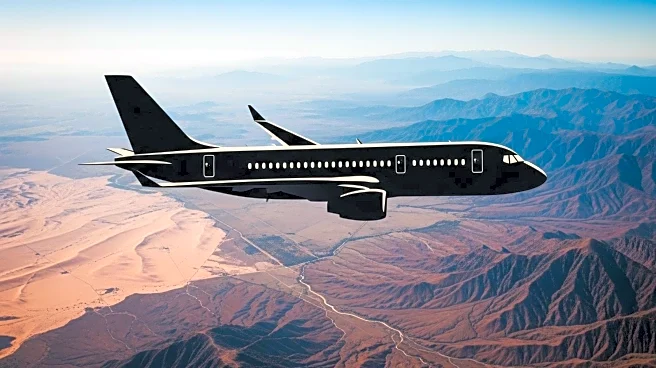What is the story about?
What's Happening?
The demand for Aircraft, Crew, Maintenance, and Insurance (ACMI) services in Africa is experiencing significant growth, particularly in North and West Africa. This trend is driven by flag carriers and private airlines, especially in Nigeria, seeking to overcome fleet limitations and expand network coverage. However, the growth is hampered by infrastructure and Maintenance, Repair, and Overhaul (MRO) capability gaps. African carriers face challenges such as restricted access to aircraft finance, delays in new aircraft deliveries, and aging fleets. These issues make ACMI a strategic tool for maintaining network coverage. Despite the demand, the operational viability of ACMI in Africa is threatened by maintenance support bottlenecks, as the continent lacks EASA Part 145-certified MROs, forcing European operators to deploy their own maintenance teams, which increases costs.
Why It's Important?
The rising demand for ACMI services in Africa highlights the continent's growing aviation sector and its potential for expansion. However, the existing infrastructure and regulatory challenges pose significant barriers to realizing this potential. The lack of certified MRO facilities and the need for specialized crew training for high-altitude operations add complexity and cost to ACMI operations. This situation affects the cost-efficiency of ACMI contracts and limits the ability of African airlines to fully leverage ACMI solutions. The broader impact includes potential delays in expanding air connectivity across Africa, which could affect economic growth and integration within the continent.
What's Next?
To address these challenges, there is a need for increased investment in MRO capacity and regulatory harmonization across Africa. This would involve developing local MRO facilities that meet international standards and improving the regulatory framework to facilitate smoother operations for ACMI providers. Additionally, airlines and ACMI operators may need to engage in long-term planning to ensure sustainable growth. Collaboration with local service providers and investment in crew training for specialized operations could also be crucial steps in overcoming current operational hurdles.
Beyond the Headlines
The challenges faced by the ACMI market in Africa reflect broader issues of infrastructure development and regulatory alignment on the continent. Addressing these challenges could lead to significant improvements in the aviation sector, potentially boosting economic development and regional connectivity. The situation also underscores the importance of international cooperation and investment in Africa's aviation infrastructure to support sustainable growth and integration into the global aviation market.
















